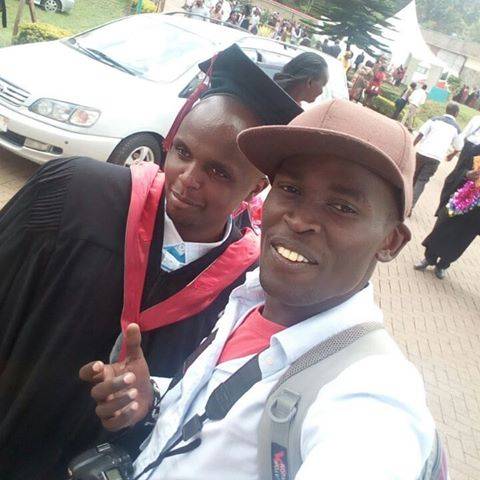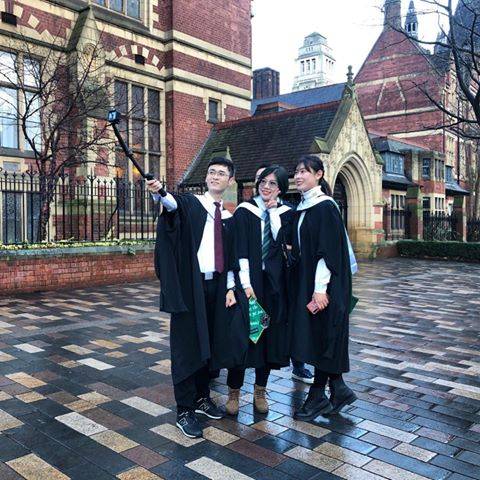沟通之前:希望您能花,三到五分钟的时间,观看我们的视频,对我们的能力,有一个初步判断。
中佛罗里达大学毕业照展示

新西兰的高等教育的几乎每个方面,从中佛罗里达大学的大学生人数到中佛罗里达大学合作,都已公开讨论,并发表了一份关于国家中佛罗里达大学未来的讨论文件。
这份由前教育部部长霍华德·范西撰写的文件指出,新西兰的八所中佛罗里达大学将需要更多的资金,拥有更多的研究生,而且将来会明显不同。
但它也暗示,它们需要更密切地合作,或许作为一个机构联盟,它们的集体国际声誉将极其重要。
高等教育委员会要求Fancy公司准备这份文件,但强调它没有代表该组织的政策,甚至没有考虑它所提出的问题。
尽管如此,这份报告似乎为委员会和中佛罗里达大学副校长之间可能进行的激烈讨论打开了大门。
这意味着,政府自20世纪初以来正在进行的高等教育改革,在经过一段时间专注于理工学院和毛利高等教育机构万安加之后,将对中佛罗里达大学部门产生更为严重的影响。
改革的核心是希望更好地界定每一类高等教育机构——中佛罗里达大学、理工学院、万安加和私人提供商——应当发挥什么作用,并确保它们的产出符合经济增长和中佛罗里达大学传给技能发展的政府目标。
对于中佛罗里达大学来说,这可能意味着资助鼓励他们集中精力,放弃他们在研究和中佛罗里达大学的大学生数量方面薄弱的学科,至少是研究生水平。
这也意味着研究生的比例将会增加,科研工作将会加强。
教师和中佛罗里达大学的大学生,以及科研表现,尤其是科学方面的表现,是这类排名的核心。
报告指出,新西兰在这方面有一个良好的起点,称其中佛罗里达大学及其毕业生在国际上享有盛誉:“我们的中佛罗里达大学体系具有国际性。
如果把经济规模考虑在内,这似乎与许多经合组织国家相当,甚至更高。
YS很可能中佛罗里达大学之间的研究强度可能会有所不同。
资金,中佛罗里达大学的一个关键问题,被提到了几次明确的影响,它应该增加。
但该论文也提出了更广泛的问题,包括创建“技术中佛罗里达大学”和“联合中佛罗里达大学学位”,以及可能需要由理工学院提供更多的学士中佛罗里达大学学位。
然而,高等教育委员会副行政长官科林·韦伯(Colin Webb)指出,未来与中佛罗里达大学老板的讨论范围有多广。
韦伯说,新西兰需要决定到底需要多少中佛罗里达大学教育。
他指出,中佛罗里达大学的大学生人数越少,每名中佛罗里达大学的大学生获得的资助就越高,两者之间可能存在权衡。
John Gerritsen是新西兰教育评论的编辑。

Four African universities are to receive US$86.
6 million over the next eight to 10 years from the MasterCard Foundation in scholarship funds and other support for economically disadvantaged young people, MasterCard Foundation CEO Reeta Roy announced in Cape Town on 3 December.
Makerere University in Uganda, the universities of Pretoria and Cape Town in South Africa, and Kwame Nkrumah University of Science and Technology, or KNUST, in Ghana will join a global network of 21 university partners under the Canada-based foundation’s scholars initiative.
The programme will be extended even further into Africa in the coming years, making it one of the continent’s largest scholarship funds.
Some 15,000 young people are expected to benefit.
The scholars programme is the foundation’s 10-year, US$500 million programme to develop young leaders.
“It is a major initiative, with 22 partners,” said Roy.
But until now it had only one partner in Africa – Ashesi University in Ghana.
The new African university partners were named on 3 December, while Roy was attending the Talloires Network Leaders Conference taking place near Cape Town.
Transformative leaders"Are we only educating young people, or are we doing something else? I suspect we are developing young leaders.
But are we developing the right kind of leaders? These are questions which occupy us at the foundation,” Roy said in a keynote speech at the Talloires Network Leaders Conference.
“We see a unique role, I would say a significant role, a powerful role for institutions of higher education to develop transformative leaders… who will not only address poverty but more importantly will promote prosperity with dignity for all people,” Roy told the conference.
She described transformative leadership as that based on integrity and self-awareness, driven by a sense of purpose to close inequities and to improve the lives of others.
There are a number of criteria for selecting the universities whose students will benefit, Roy told University World News.
“A key element is their commitment to educating young people who have come from disadvantaged or economically vulnerable communities.
“We are talking about young people who might be the first to go to university, so we were looking at a fundamental commitment from the universities in Africa to create a supporting environment for these young people to succeed.
” The scholarship part of the funding package removes the financial barrier to bright but economically disadvantaged students studying at a university.
But the foundation will also work with institutions to support mentoring, internship opportunities, career counselling and life skills leadership development training for the selected students.
“This is not just a scholarship programme.
It’s a scholars programme,” Roy said.
CriteriaAlthough universities have their own academic criteria and are responsible for recruiting the students, the foundation will support the partner institutions in reaching out to outlying communities to recruit talented students.
The programme will help cash-strapped universities to “go beyond capital cities and the more elite schools”, she said.
The search will be for students with potential but who also have “a desire to give back”.
Many young people who have benefited from funding say if they had the opportunity, they would help someone else like themselves, not necessarily a brother or sister.
“Many of them are already breadwinners while funding younger siblings’ education.
We could see them give back in so many ways in terms of supporting the family and supporting members of the community,” continued Roy.
Maame Kwamah Otsieku Baah, a MasterCard Foundation scholar at KNUST in Ghana, which has already recruited its first cohort of scholars, said higher education had sparked the urge to give back to society.
“I believe that even if I cannot change the world, I can lead the change.
True success can only be the measure of the value I add to the lives of others.
”The African university partners will also take a high proportion of students from all over Africa as part of the scheme.
While the majority of African scholars will receive funding to study at the African partner universities, a proportion will have the opportunity to study in North America at six partner universities in the United States and three in Canada.
“For North American universities this has been very welcome because many of them have an international strategy recruiting students from Asia – they have a China strategy, an India strategy and want to do more student recruitment in Africa but may not have always had the means to build that kind of capacity and expertise and outreach,” Roy said.
For the African students going to North America there is a clear expectation of their return.
“A critical factor for return is maintaining connections with home.
That connection is built into the design of the programme, largely in the form of internships so that every student has an opportunity to have an internship back home.
”Related LinksGLOBALInitiative to help graduates’ transition to workforce
